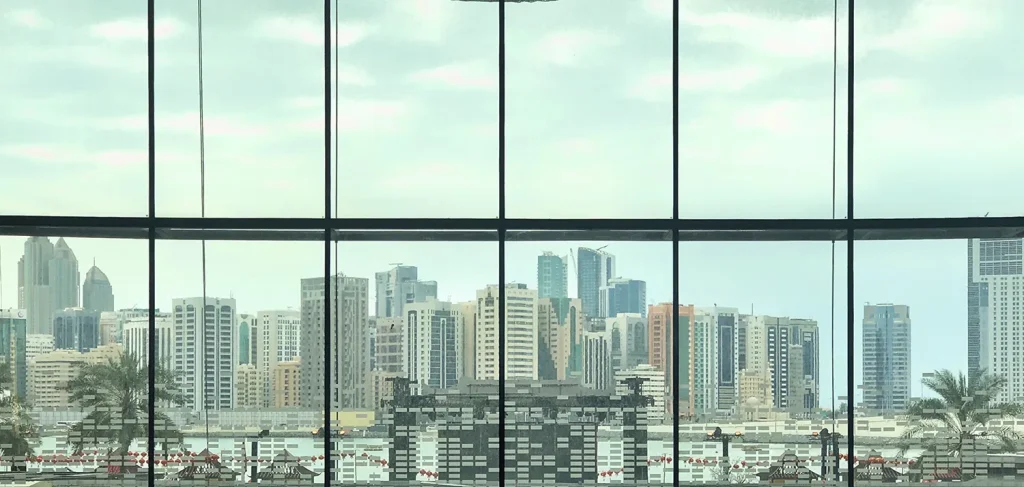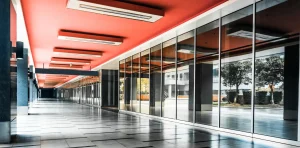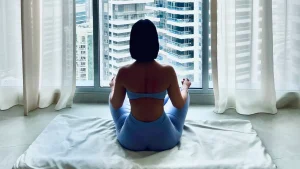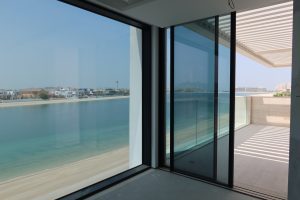How Soundproof Windows Improve Home Comfort in Noisy Areas
Understanding Noise Pollution in Dubai Homes: Causes, Solutions, and the Role of Soundproof Windows
Noise has become one of the most common challenges facing residents across Dubai. The city’s rapid growth, long development cycles, busy road networks and lifestyle-oriented waterfront communities have all contributed to rising noise levels in both villas and apartments. While Dubai remains one of the world’s most advanced, safe and comfortable cities, the increase in environmental noise has pushed many homeowners to search for long-term solutions that can restore quiet, comfort, and better quality of life indoors.
This article explores the reality of noise pollution in Dubai homes, why it happens, the types of noise most residents experience, and proven solutions that actually work. We will also look at the critical role that modern soundproof windows, upgraded acoustic frames, laminated glass, and proper installation play in controlling noise levels inside Dubai’s residential buildings.
What Noise Pollution Really Means in Dubai Homes
Noise pollution simply refers to unwanted or disturbing sound that disrupts daily life. In Dubai, the issue goes beyond annoyance—prolonged exposure to high noise levels can affect sleep, concentration, productivity, and emotional wellbeing. Parents with newborns, remote workers, shift workers, students, and even pet owners are often among those most affected.
But unlike other global cities, the noise patterns in Dubai have very specific characteristics because of how the city is designed and how communities grow. This means the solutions also need to match the unique environmental conditions of the UAE.
The Biggest Sources of Noise in Dubai Residences
1. Traffic and Highway Noise
Dubai’s major road networks—Sheikh Zayed Road, Al Khail Road, E311, E611 and Hessa Street—remain active almost 24 hours a day. High traffic density, engine sounds, tyre friction and horns frequently affect nearby towers and villas. Fast-moving vehicles produce high-frequency noise, while powerful engines and motorcycles add low-frequency vibration that travels further into buildings.
Communities most affected include:
- Dubai Marina
- JBR
- Downtown
- Business Bay
- JLT
- Al Barsha
- Arjan and JVC
- Areas along E311 / E611
In high-rise towers near highways, wind patterns can amplify sound, creating an echo effect that travels from balcony to balcony and through weak window frames.
2. Construction Activity
Dubai’s development pace means construction is consistently active in multiple districts. Even when work follows local timing regulations, drilling, hammering, concrete cutting, heavy machinery, and steel work generate sharp, high-frequency noise that penetrates standard aluminum frames and thin single glazing.
Residents near upcoming community developments, new towers, and infrastructure expansion commonly report:
- Intermittent drilling noise
- Sudden sharp impacts
- Continuous machinery hum
- Low-frequency vibration
These noises travel easily through poorly sealed windows and older sliding systems.
3. Nightlife, Beachfront, and Tourism Zones
Areas such as JBR, Bluewaters, West Beach, Dubai Marina, Palm Jumeirah, and Downtown host Dubai’s most vibrant lifestyle venues. These areas offer a premium living experience, but they also experience elevated noise levels at night.
The biggest challenge here is low-frequency bass from music—this type of sound travels further, vibrates through glass and aluminum, and is almost impossible to block with standard windows or double-glazed units.
4. Neighbourhood and Community Noise
Even outside busy hotspots, many homes deal with:
- Children playing
- Community events
- Service roads behind villas
- Sports courts
- Delivery traffic
- Pet noise
- School activity during mornings
While this type of noise is generally lighter, it becomes significant when windows are thin or frames are old.
5. Aircraft, Marina, and Water Noise
Certain waterfront or airport-adjacent communities experience:
- Boat horns
- Jet ski sounds
- Aircraft paths
- Echo from open water surfaces
These noises often contain a mix of frequencies, requiring balanced acoustic systems.
Why So Many Dubai Homes Let Noise In
Most noise problems in Dubai homes are not because the city is loud—but because many homes simply do not have the window systems required to block modern urban noise.
1. Single Glazing
A large number of homes built before 2015 used single-glazed 4–6 mm glass. While it is acceptable for basic insulation, it offers very limited protection against traffic, construction and nightlife noise.
2. Aluminum Sliding Windows
Sliding windows are the biggest weak point in most apartments:
- They cannot be fully sealed
- Their track design allows air gaps
- Thin frames vibrate easily
- Rubber seals degrade quickly
Even a 1 mm air gap can let in 8–12 decibels of sound.
3. Poor Sealing and Frame Movement
Dubai’s intense heat causes aluminum and rubber seals to expand and contract. Over time, this creates:
- Micro-gaps
- Warped frames
- Loose locking points
- Cracked or dried rubber
Any gap allows noise to pass through easily.
4. Double Glazing Misconception
Double glazing in Dubai is often assumed to be “soundproof,” but in reality:
- Many units use equal glass thickness on both sides
- Air gaps are too small
- Frames are not acoustic-rated
- No laminated glass is used
Standard double glazing is designed for thermal, not acoustic performance.
5. Thin Wall Construction
In some towers, walls and façade panels are not designed to stop noise, meaning windows become the only point of effective improvement.
How Sound Travels Into Dubai Homes
There are three main pathways:
Airborne Noise
Common sources:
- Traffic
- Construction
- Airplanes
- Human voices
This enters through:
- Gaps in frames
- Weak seals
- Thin glass
- Slider tracks
Structure-Borne Noise
Low-frequency vibration travels through:
- Walls
- Floors
- Balcony rails
- Window frames
Bass from parties and music often falls into this category.
Flanking Noise
Sound bypasses the window by traveling around it:
- Through walls
- Behind façade panels
- Around weak junction points
High-rise buildings with curtain walls frequently have this issue.
How Soundproof Windows Solve Noise Issues in Dubai
Soundproof windows are designed to target all three pathways by combining mass, damping and airtight sealing. The most effective systems include:
1. Laminated Acoustic Glass
This is the foundation of modern soundproofing. Acoustic laminated glass contains multiple layers with a sound-damping interlayer that:
- Reduces low-frequency vibration
- Absorbs impact noise
- Provides higher STC ratings than regular glass
- Increases safety and UV protection
It is especially effective for:
- Bass
- Drilling noise
- Construction activity
2. Multiple Glass Thickness Combinations
Using glass layers of different thickness disrupts resonance and blocks a wider range of frequencies.
3. Deep Air Gaps
A 70–150 mm cavity dramatically increases sound reduction. This is far more effective than the narrow gaps used in standard double glazing.
4. Airtight Acoustic Frames
High-performance acoustic frames prevent leakage through:
- Multi-point locking systems
- Durable gaskets
- Rigid frame designs
- Proper compression when closed
Weak frames are the most common reason standard windows fail.
5. Secondary Acoustic Window Systems
This solution is ideal for:
- Rented apartments
- Homes that cannot remove the original frame
- Properties with aluminum sliders
Adding a second independent window behind the existing one creates a large cavity that blocks bass and heavy traffic noise.
6. Soundproof Balcony Sliding Systems
Balcony doors are the biggest sound-entry points in seaside communities. Upgraded acoustic sliders or secondary sliding systems significantly reduce:
- Music bass
- Street activity
- Wind echo
- Marina noise
Benefits of Installing Soundproof Windows in Dubai Homes
1. Better Sleep and Mental Wellness
Noise affects:
- Sleep cycles
- Mood
- Stress levels
- Cognitive function
A reduction of even 8–10 dB is noticeable; 20–30 dB reduction transforms the living experience.
2. Improved Energy Efficiency
Soundproof windows also offer better thermal performance:
- Reduced AC usage
- Less heat transfer
- Lower electricity bills
- More stable indoor temperature
Heat-resistant acoustic glass and airtight frames reduce strain on cooling systems.
3. Higher Property Value
Properties with acoustic upgrades appeal to:
- Families
- Professionals
- Long-term renters
- Investors
A quieter home is easier to rent and sells at a premium.
4. Better Privacy
Acoustic systems limit both:
- Incoming noise
- Sound escaping from inside
This is helpful for:
- Studios
- Home offices
- Bedrooms
- Conference rooms
5. Enhanced Safety
Laminated acoustic glass:
- Stays intact when cracked
- Resists impact
- Provides better security
This makes it ideal for villas and ground-floor apartments.
Practical Steps to Reduce Noise in Dubai Homes
1. Upgrade to Proper Soundproof Windows
This is the most effective method, especially in high-noise zones. Consider dedicated soundproof window solutions designed specifically for Dubai conditions.
2. Replace Old Frames
Worn-out frames reduce performance by up to 40%. Modern acoustic frames and casement systems significantly increase isolation compared to older sliding units. Explore specialist window replacement services when frames are damaged or poorly sealed.
3. Install New Acoustic Systems for Balconies
Sliding doors often leak the highest amount of sound, especially in waterfront and high-rise locations. New balcony systems or secondary glazing can dramatically lower noise coming through balcony doors. Dedicated acoustic installation systems can be tailored to existing balcony layouts.
4. Upgrade Sliding Doors to Better Sealed Systems
Upgrading to better sealed, heavy-duty doors is a strong line of defense against noise. High-quality hinged or specialised pivoting systems with deep seals and laminated glass provide far better results than basic sliders. In some layouts, acoustic door upgrades are used to control both sound and airflow between rooms or balconies.
5. Add Secondary Acoustic Windows
Secondary windows are installed on the inside, behind existing frames. They are ideal for tenants or homes that cannot undergo frame removal, and they create a powerful secondary barrier that blocks traffic noise and bass.
6. Seal Gaps and Weak Points
Professional sealing improves performance significantly when paired with laminated glass. Filling micro-gaps, repairing damaged seals, and tightening locking points all enhance the overall acoustic performance of the window system.
7. Use Interior Partitioning to Create Quieter Zones
Interior glass or solid partitions can be used to separate quieter zones from noisier areas, especially in open-plan apartments and villas. Well-designed acoustic room partitioning helps create calm bedrooms, studies, or TV rooms away from primary noise sources.
8. Repair External Façade Issues
External façade leakage increases indoor noise. Gaps around panels, damaged sealant, or loose cladding can act as hidden sound paths. Specialist façade inspection and repair via rope access is often required in high-rise buildings to identify and fix these issues properly.
When Should Dubai Residents Consider Soundproof Windows?
You may need an upgrade if you experience:
- Persistent traffic noise
- Late-night music or bass
- Construction drilling
- Sudden sharp sounds
- Wind whistling through frames
- Vibrations from vehicles or nearby buildings
- Difficulty sleeping
- Noise coming through balcony sliders
Residents near:
- Highways
- Beachfronts
- Nightlife districts
- Construction sites
- Busy community clusters
…report the highest improvements after installing soundproof windows.
Frequently Asked Questions
1. Are soundproof windows effective in high-rise towers?
Yes. Acoustic laminated glass and airtight casement systems perform extremely well in towers exposed to highway and marina noise.
2. Do soundproof windows block bass?
Yes—if they include laminated glass, deep cavities, and airtight frames. Bass cannot be blocked with standard double glazing.
3. Can soundproof windows help with construction noise?
Absolutely. Laminated glass is designed to reduce impact and drilling noise, which are common in active development zones.
4. How much noise can they reduce?
Modern systems reduce noise by 50–90%, depending on the frequency and window configuration.
5. Do soundproof windows help reduce AC bills?
Yes. Acoustic frames and laminated glass improve thermal insulation, which reduces cooling costs.
6. Can these systems be installed in rented apartments?
Yes—secondary acoustic windows are perfect for tenants.
7. How long does installation take?
Most installations take 1 day per room, depending on access and quantity.
8. Do I need to replace the entire window or only the glass?
This depends on:
- Condition of the frame
- Sound intensity
- Sealing quality
A full frame replacement is recommended for heavy noise.
Conclusion
Noise pollution is increasingly affecting homes across Dubai, from vibrant beachfront districts to major business corridors and newly developing residential zones. While the causes vary—traffic, nightlife, construction, community activity—the impact on daily life is very real. Fortunately, modern soundproof windows, upgraded frames, acoustic glass, and proper installation offer powerful, long-term solutions that restore comfort and silence inside Dubai homes.
Whether you live in a tower near a busy road, a villa close to a community park, or an apartment facing a nightlife district, the right acoustic system can transform your living environment and significantly improve sleep, wellbeing and energy efficiency.
To discuss the right solution for your building or apartment, you can learn more about soundproof windows in Dubai or reach the team via the Sono contact page.





